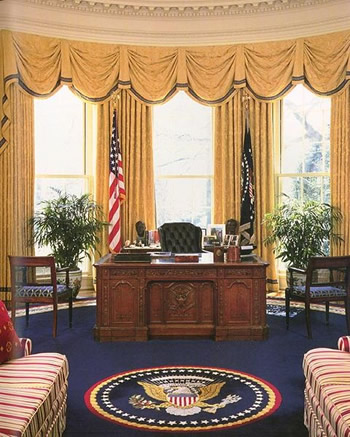Obama could be removed by his own signature
By: Devvy
July 22, 2011
 My recent column, Why
Obama Can't be Impeached, brought an avalanche of email with many
questions. In particular, someone wanted to
know if hypothetically, Barry Soetoro aka Obama, committed
treason by selling sensitive military secrets, could he be charged
with treason? The putative president is a civilian and can be
indicted by a federal grand jury. If enough evidence exists, he could
be tried and convicted. But, as someone who has usurped the
office of the president, he cannot be impeached for the same crime
since he does not legally occupy the office.
My recent column, Why
Obama Can't be Impeached, brought an avalanche of email with many
questions. In particular, someone wanted to
know if hypothetically, Barry Soetoro aka Obama, committed
treason by selling sensitive military secrets, could he be charged
with treason? The putative president is a civilian and can be
indicted by a federal grand jury. If enough evidence exists, he could
be tried and convicted. But, as someone who has usurped the
office of the president, he cannot be impeached for the same crime
since he does not legally occupy the office.
He clearly is
guilty of violating 18 U.S.C. §1343, the federal wire fraud
statute, which typically carries a penalty of at least 20 years. As a
civilian, he can be indicted and tried in federal court.
Question
about the oath of office ceremony. As Barry clearly has known all
along he was never eligible, when he took the oath of office, he
committed perjury - twice. We can all remember, there was a second
'swearing in' due to Chief Justice John Robert's tripping over his
tongue. But, was there more to it?
At the invitation of Chief
Justice John G. Roberts, Jr., the putative president paid a
'protocol' visit to the Supreme Court, January 14, 2009. The visit
was private behind closed doors with no media. At that time, Roberts
had cases on the docket where Obama was the defendant or was the
subject of pending litigation.
On a Wednesday, Roberts meets
with the man at the heart of that case in private. Two days later, he
sits down to discuss the case with the other justices after having a
closed door meeting with the defendant! Also pending at the time was
the Lightfoot v Bowen case to be heard in conference, January
23, 2009. Chief Justice Roberts sat in that private meeting to
discuss whether the case should go to oral arguments; it did not.
Does anyone see major conflict of interest here?
Even if they
just chatted up the weather, it is highly inappropriate. Roberts
should have notified the "president elect" that under the
circumstances, he would not be able to meet with him, period. There
must be zero appearance of any bias or preference when it comes to
judges and justices of the Supreme Court.
The number one goal
in seeing the putative president removed from office is that his
"presidency" not be legitimized. Impeaching him would do
just that. Any investigation of Barry's crimes would have to go
through the U.S. Department of Justice. A conundrum to be sure.
If the usurper is removed because he is clearly ineligible, so goes
Eric Holder, Elena Kagan, Sonia Sotomayer, every other judicial
appointment now confirmed and every bill he has signed into 'law'.
The Outlaw Congress accepted the electoral college vote
instead of invoking House rules and initiating an investigation. Not
one of the 535 members stood up for the U.S. Constitution that day.
They (including Michelle Bachmann and Ron Paul) are responsible for this severe constitutional crisis that at some point
will reach critical mass.
Is there any other way the putative
president could be removed from office other than a quo warranto
action? Mario Apuzzo, is an attorney who has been representing
plaintiffs in cases involving the putative president's ineligibility.
Mario has raised the issue of standing, a judicial hallucination, in
a case, Bond
v. United States, 564 U. S. decided by the U.S. Supreme
Court, June 16, 2011 [emphasis mine]:
"Applying the Bond decision to a case challenging Obama's
eligibility, one would have to be criminally charged or be compelled to pay money under a statute passed by Congress when
Obama was President. One would argue that under Article I, Section 7,
Clause 2, laws passed by Congress need the action or inaction of the
President (the veto power) before they are allowed to become laws.
This requirement satisfies separation of powers and checks and
balances doctrine. One would argue that Congress passed the charging
statute, with the President's action or inaction. One would argue
that a legitimate President must satisfy the eligibility requirements
of Article II, Section 1, Clause 5, which contains the "natural
born Citizen" clause. Then one would argue that the law is not
valid because it never was presented to a legitimate President for
consideration under Article I, Section 7, Clause 2, arguing that
Obama is not a legitimate President because he does not meet the
requirements of the "natural born Citizen" clause..."
Dr.
Edwin Vieira raised this very remedy way back in Dec. 2008:
"For
a extensive class of litigants who absolutely do have “standing”
to challenge Obama’s eligibility will come into existence, and
demand relief as a matter of undeniable constitutional right and
practical necessity, as soon as Obama’s Department of Justice
attempts to enforce through criminal prosecutions some of the
controversial legislation that the new Congress will enact and Obama
will sign—such as statutes aimed at stripping common Americans
of the firearms to which (in Obama’s derisive terminology) they
“cling.”
"For example, in a criminal
prosecution under a new statute that reinstates the Clinton
“assault-weapons ban” (or some equally obnoxious affront
to Article I, Section 8, Clauses 15 and 16 and the Second Amendment),
the defendant will undeniably have “standing” to
challenge the indictment on the grounds that no statute imposing such
a ban even exists, because the original “Bill which passed the
House of Representatives and the Senate” was never “presented
to the President of the United States”, and therefore could
never “become a Law,” inasmuch as the supposed
“President,” Barack Obama, being constitutionally
ineligible for that office, was then and remains thereafter nothing
but an usurper. [See Article I, Section 7, Clause 2 and Article II,
Section 1, 4]
"Plainly, a criminal trial arising under a
supposed law of the United States is a “Case” to which
“the judicial Power [of the United States] shall extend”;
and the defense as well will raise a specific issue “arising
under th[e] Constitution, [and] the Laws of the United States.”
[Article III, Section 2, Clause 1] The defendant will be suffering
serious “injury in fact:” namely, a criminal indictment
and a compulsory trial, with the possibility of a conviction,
imprisonment, and, if the infraction is called a “felony,”
the forfeiture of many civil rights even after his release from
incarceration. The prosecutor on one side and the defendant on the
other will be adversaries espousing diametrically opposed and
irreconcilable positions—so the “Case” cannot be
deemed in any way collusive. The purported statute's invalidity by
virtue of its legal nonexistence will be “ripe” for
decision, because the statute is the basis for the indictment, and
its invalidity the foundation of the defense to the charge. And,
unless and until the prosecutor importunes the court to dismiss the
indictment with prejudice, the issue of the putative statute's legal
nonexistence and inapplicability to the defendant will be anything
but moot."
Obama/Soetoro's legal day of reckoning is
coming and his downfall could come by his own signature.






